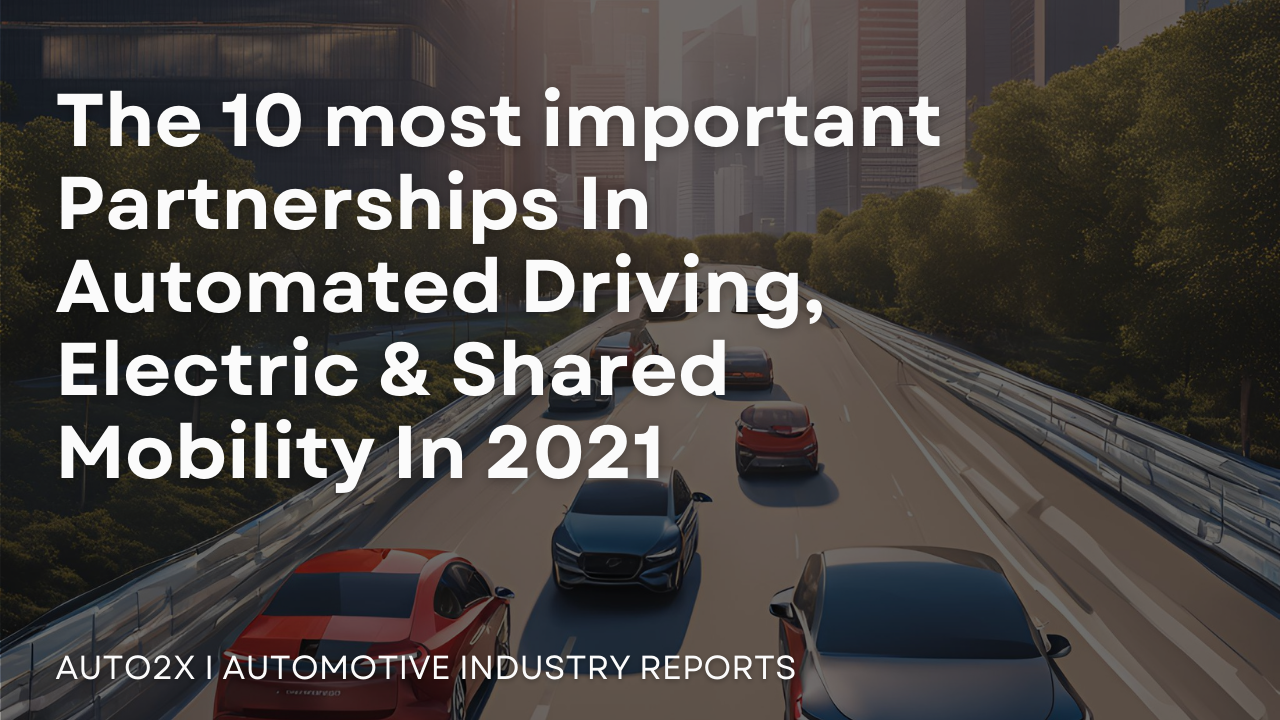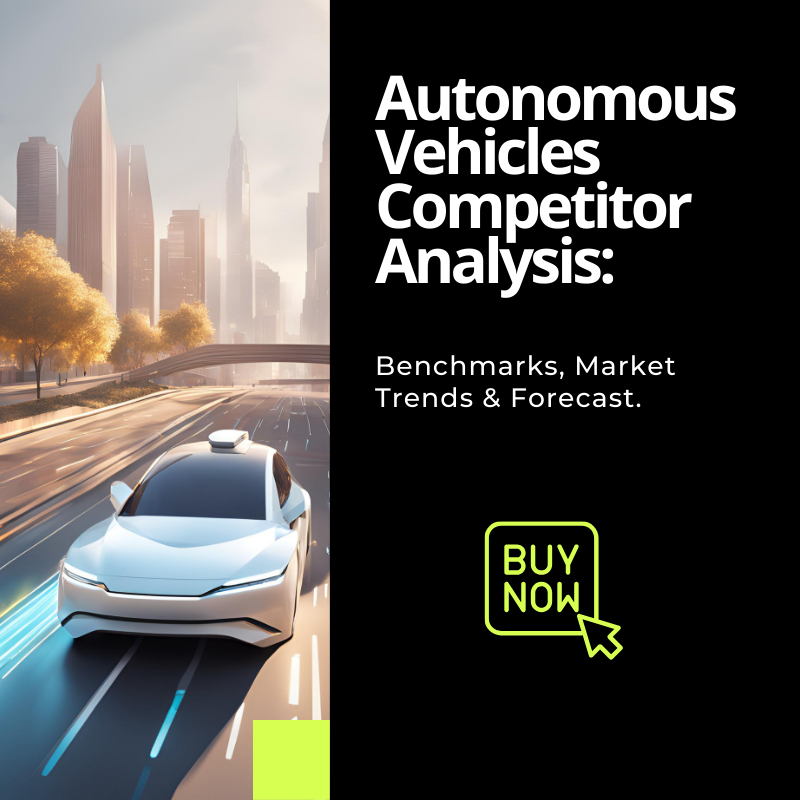Technology Partnerships in Automated Driving for Lidar-based Level 3, Software-defined cars
SAIC-Luminar Tech partnership for Lidar (March 2021)
Technology Domain: Lidar & Software integration
What: Luminar collaborates with SAIC in order to integrate its Lidar sensors and Sentinel software technology into SAIC’s new electric vehicle line “R brand” vehicles launching in 2021.
Why it matters: This is an indication that SAIC is planning Level 3+ (for highways) or Level 4 Automated Driving to compete with other Chinese brands such as Changan, Tesla and newcomers such as NIO and Xpeng. Today, SAIC’s brand MG is equipped with Level 2-Traffic Jam Assist under the MG Pilot. The addition of Lidar can complement radar and camera sensors to provide a more robust perception of the vehicle’s environment required for Level 3 and Level 4- Highly automated driving.
Luminar has already built a strong supply chain base with leading carmakers to install its lidars. Luminar has partnerships with Volvo to provide lidar for the SPA-2 based cars coming in 2022 with Level 4-Highway Pilot. The company teamed up with the ex-Audi AID, now Argo AI in Dec’18 for forward-looking Lidar.
What to expect next: Chinese brands are leveraging partnerships to deploy Level 3 and Level 4 Autonomous Driving in China. Auto2x expects vehicles equipped with Level 3-Driving features in China to account for 6% of new car sales in China in 2025 or 2.3 million cars. SAIC will follow BAIC, Changan and Chery among Chinese carmakers to offer Level 3+ Automated Driving by 2025 which allows drivers to take their eyes off the road on specific highways and perform side tasks where the system controls driving function. But they must always be available to take over vehicle control- since they are (by definition) the ultimate backup.
Denso collaborates with lidar-developer Aeva (January 2021)
Technology Domain: Commercialization of FMCW Lidar Technology
What: Denso partners with Aeva to advance Frequency Modulated Continuous Wave (FMCW) lidar to the mass vehicle market. Denso claims that FMCW lidar is capable of performing with higher accuracy and speed in comparison to mass-deployed Time of Flight (TOF) lidar, as it detects not only the direction and distance of surrounding objects (pedestrians, bicycles etc.) but also their moving speed.
Why it matters: Denso together with its main Tier-1 competitors Bosch and Continental have been highly active recently in LiDAR development to offer a complete perception set to carmakers. In October 2020, Continental invested in AEye to expand its automated driving sensor portfolio with AEye’s 4Sight long-range lidar. Also in 2020, Bosch announced they are working on LiDAR that will cover both long and close ranges for highway and city driving scenarios respectively.
What to expect next: Aeva followed a number of LiDAR startups to IPOs (AEye, Luminar, Ouster and Innoviz. and Velodyne) and was recently listed on the New York Stock Exchange under the ticker symbol, “AEVA”.
Aeva is engaged with 30 of the top OEM and automotive industry players in the advanced driver assistance and automated driving industries, has received strategic investments from Porsche SE, the majority shareholder of VW Group, and has relationships with some of the largest Tier 1 automotive suppliers.
Aeva
Toyota’s Woven Planet partners with Apex.AI (April 2021)
Technology Domain: Automated Driving Platform and Software
What: The collaboration with Apex.AI enables software development in Toyota’s development platform Arene. Apex.OS -a software development kit (SDK)- will integrate into Arene’s software stack to shorten the R&D of autonomous software development and ultimately bring it to production vehicles
Why it matters: Toyota does not own the architecture of the software existing within its vehicles which are “hardware-defined”, i.e. they have dozens of components that are not integrated with each other. The partnership aims to close the gap with competitors whose cars are “software-defined” like Tesla that have been doing software development for their cars for quite some time as software integration to AVs can allow scalability, provide product differentiation and improve customer experience.
What to expect next: The transition from hardware-defined vehicles to software-defined vehicles is crucial for automakers. “Software is now a prime value driver in the product development portfolio of automakers”, according to a recent McKinsey report.
Daimler’s Torc Robotics selects Amazon as its cloud provider for self-driving trucks (February 2021)
Domain: Cloud-Mobility
What: Torc Robotics, which develops self-driving vehicle software, is now focusing on the commercialization of its Level 4 self-driving system in trucks. Torc will leverage Amazon’s cloud system to handle the generated data with greater efficiency.
Why it matters: Cloud-based development of ADAS promises scalability, efficiency, security, and staying always up to date to guarantee that today’s systems will mitigate future accidents in the ever-changing road environment. Learn more about the benefits of cloud-based Automated Driving here.
“We believe this relationship between Torc and AWS brings together two very strong teams and is another milestone on our road to Level 4 trucks”
Dr. Peter Vaughan Schmidt, Head of Daimler Trucks’ Autonomous Technology Group
Partnerships in Electrification & Sustainability
Daimler Trucks & Volvo Group launch Hydrogen Truck Joint Venture “CellCentric” (April 2021)
Technology Domain: Fuel Cell development for heavy-duty trucks and other applications
What: Daimler and Volvo Group partnered in a new fuel cell joint venture in order to commercialize fuel cell technology. The operation will begin in 2025. The JV aims at achieving the carbon-neutral goals of both Truck makers by combining the expertise of two strong players in the Trucking industry.
Why it matters: Hydrogen Fuel Cell technology for heavy, long-haul trucks benefits from longer range and faster refuelling compared to Battery Electric Trucks. Both Daimler and Volvo follow a dual parallel strategy in Truck electrification to decarbonize their fleet. On the one hand, they are working on Battery Electric Trucks for short-distance, low-weight applications (e.g. Mercedes-Benz eActros) on the other hand developing Hydrogen Trucks for heavy-duty, long-haul applications. The two technologies can complement each other depending on the use case.
Partnerships like cellcentric are vital to our commitment to decarbonizing road transport.
Martin Lundstedt, CEO of Volvo Group
What comes next: A number of technological and commercial barriers restrict the adoption of Hydrogen in Trucks today but the industry is working on tackling them. The production cost of Green Hydrogen (from renewable resources), the cost of vehicles, the storage and distribution (refuelling infrastructure) are among the key challenges for the commercialization of the technology. Daimler and Volvo call for a “harmonized EU hydrogen policy framework to support the technology in becoming a viable commercial solution”.
Baidu collaborates with Geely for smart EVs by 2024 (January 2021)
Technology Domain: Smart Electric Vehicles (EVs)
What: Geely partnered with Baidu in order to develop intelligent EVs. The $7.7 billion Joint Venture called “Jidu Auto” aims to deliver its first smart full electric vehicle by 2024.
Why it matters: Baidu is looking to monetize its expertise in intelligent driving technologies within its Apollo division, which has been operating since 2013, by tapping into the booming electric vehicle market (NEV) and shared mobility in China. The new JV with Geely is another way to respond to recent competition. Alibaba – the Chinese e-commerce giant – has formed an EV joint venture with SAIC. Also Didi Chuxing – the Chinese ride-hailing provider backed by SoftBank- has partnered with automaker BYD in D1 development – an electric vehicle specifically designed for ride hailing services.
Mercedes−Benz & Siemens partner for digital and sustainable automotive production (March 2021)
Technology domain: Industry 4.0: digitalization and automation of automotive production under sustainable goals
What: The partnership aims to develop innovative solutions for the qualification of employees, digitalization and for increasing energy efficiency in production for the development of sustainable future technologies.
In the future, e-mobility components will also be assembled in Berlin. The company wants to secure the future for the Berlin plant, which is the oldest site in the Mercedes-Benz global powertrain production network.
Mercedes-Benz
Partnerships in Shared Mobility and Robotaxis
Mobileye partners with Silicon Valley startup Udelv (April 2021)
Technology Domain: Autonomous Delivery
What: Mobileye teams with Udelv to launch 35,000 full electric driverless delivery vehicles by 2028. According to a recent announcement, Molileye’s self-driving system branded the “Mobileye Drive”, will “drive” Udelv’s next-generation autonomous delivery vehicles. Udelv is among the self-driving technology companies that are currently focusing on the delivery of goods, following the pandemic-driven boom in e-commerce and touchless delivery.
Toyota, Aurora And Denso Partner to Develop Robotaxis (February 2021)
Technology Domain: Robotaxis / Autonomous-Mobility-On-Demand (AMOD)
What: Toyota’s Sienna minivans will be fitted with Aurora’s self-driving hardware and software stack to be turned into robotaxis to be tested by the end of 2021. Aurora will explore mass production of self-driving components with Denso and with Toyota the development of mobility and financial services.
Why it matters: For Toyota-backed Aurora, it is an important step to compete with Waymo, Cruise (backed by GM), Argo AI (backed by Ford-VW). It comes a few months after the acquisition of Uber’s ATG automated driving unit. Toyota remains an investor in Uber and transferred its equity stake from ATG to Aurora under the deal.
Microsoft’s Azure cloud platform will power GM Cruise’s robotaxis (January 2021)
Technology Domain: Automotive Cloud for Robotaxis
What: Cruise will use Azure, Microsoft’s cloud and edge computing platform, to scale its automated driving vehicles while Microsoft will invest $2bn in Cruise joining GM and Honda. GM will work with Microsoft as its preferred public cloud provider.
Read more
To learn more about competition and market developments in the next decade read our reports
- 30 Carmakers’ Roadmaps in Automated Driving up to 2025.
- ADAS Suppliers Rankings & market shares 2015-20

